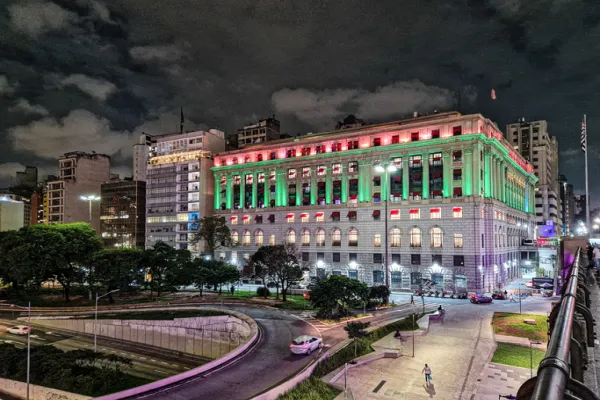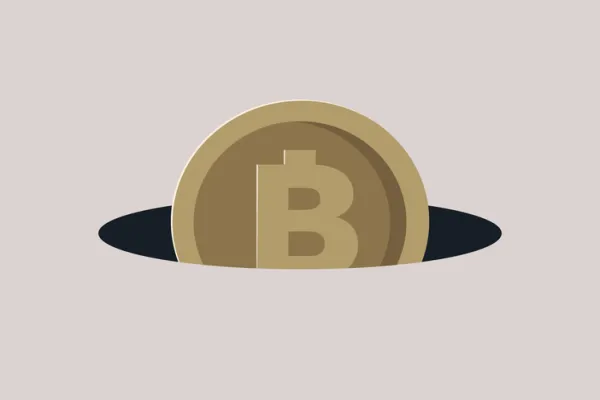When the U.S. subprime crisis erupteda year ago, China seemed like an oasis in the gathering storm. The country’s booming economy offered hope of a new dynamo to replace the spent American consumer, while hard-pressed financial institutions made a beeline for Beijing, seeing China’s $1.6 trillion of foreign exchange reserves as a source of much-needed capital. Chinese policymakers were equally confident: They continued to tighten monetary policy by raising reserve requirements as recently as June in a bid to contain inflation, which they perceived as the greater nemesis.
Today, however, hopes that China might escape the fallout from the financial crisis have faded. The country’s economy has slowed noticeably in recent months, with growth decelerating to an annual rate of 10.1 percent in the second quarter, down from 10.6 percent in the first and 11.9 percent for all of 2007; officials say growth may slow further to 9 to 9.5 percent. Although such a rate would be enviable by global standards, Chinese authorities worry that it won’t be enough to create the estimated 20 million jobs needed each year to absorb migrants entering the country’s cities.
Even more worrying, China’s financial markets have been whipsawed by the global turmoil. The benchmark CSI 300 index, which soared 161.5 percent in 2007, was down 58 percent this year through late last month. The country’s real estate market has also cooled off dramatically in recent months, a development that, if sustained, could generate losses at big Chinese banks. Far from being insulated from the global economy, China is being buffeted by the ill winds blowing from the U.S., Europe and Japan.
"I don’t see China collapsing into financial crisis on the scale of the U.S., but the impact nevertheless will be significant," says Andy Xie, a Shanghai-based independent economist. "Roughly 40 percent of China’s gross domestic product is dependent on exports, and China trades a lot with the U.S. A lot of hot money came to China on the expectation of the rapid appreciation of the renminbi, and a lot of this money will go back to the U.S. This will hurt China’s real estate, and this means the banking system will see rising nonperforming loans again. China cannot escape these global trends."
China is hardly alone. Many emerging markets have suffered financial turmoil and a sharp slowdown in growth in recent months, dealing a blow to the idea that these countries had decoupled themselves from developments in the traditional industrial countries. The MSCI emerging markets index was down 30.3 percent late last month from the end of 2007, compared with a drop of 18.1 percent for the Standard & Poor’s 500 index. One of the biggest losers was Russia. The country’s stock market tanked, and several banks failed, after foreign money exited the country following Russia’s conflict with neighboring Georgia in August and sharp criticism of steel and mining company Mechel by Prime Minister Vladimir Putin.
"This is more than a hiccup," says Yaroslav Lissovolik, co-head of research at Deutsche Bank in Moscow. "It reminds us that Russia is indeed an emerging market. It needs more reforms and more institutional investors."
Like most other emerging markets, China’s direct exposure to the U.S. crisis is still relatively small. After Lehman Brothers declared bankruptcy last month, Industrial and Commercial Bank of China, the country’s largest lender, disclosed that it held $151.8 million in Lehman debt, Bank of China said it had $128.8 million and China Construction Bank announced exposure of $191.4 million. But the rapid-fire series of bankruptcies on Wall Street caught Chinese officials and financial experts off guard.
"The U.S. must repatriate a lot of cash from China and elsewhere to save itself," says Yeo Lin, a professor of industrial strategy at the School of Management at Zhejiang University in Hangzhou, southwest of Shanghai. "Asia and China are tied to the global economy, and the region is still highly dependent on global investments to drive growth. I don’t see us escaping unscathed."
Fortunately for China, authorities have plenty of resources on hand to try to minimize the impact of the crisis. Within days of Lehman’s bankruptcy, the government eliminated stamp duties for buyers of stocks in an effort to support the slumping market. China Investment Corp., the nation’s $200 billion sovereign wealth fund, announced that it was buying shares of state-controlled banks including ICBC, Bank of China and China Construction Bank. The State Assets Supervision and Administration Commission said that it was buying back some shares of publicly listed, state-controlled companies in an effort to mitigate volatility on the Shanghai Stock Exchange. And the central bank last month reduced its main interest rate by 27 basis points, to 7.2 percent, the first cut in six years.
China is not headed toward a banking crisis, says Laurie Cang, a banking analyst with credit agency Moody’s in Beijing. About 3 percent of loans in the banking system are nonperforming, compared with 20 percent just five years ago when the government injected billions of dollars to take the bad loans off the banks’ books in preparation for their public listings. "We believe that in the past five years the major banks have strengthened their financial fundamentals," Cang says. "We see improvement in profitability and asset quality."
Property prices have begun to fall though, putting pressure on banks that lent heavily to speculators, says Guan Anping, a Beijing-based securities lawyer and former government official. Some large developers are cutting prices by as much as 30 percent, he notes.
"We do see this as a challenge," says Moody’s Cang. "We don’t see a subprime crisis occurring in China. Still, we can’t rule out that there is speculative investing out there."
In Russia, meanwhile, share prices have been sliding since early summer, along with oil prices and global investor confidence. Prime Minister Putin rattled business executives and investors by accusing Mechel of tax evasion and by allowing immigration officials to force executives of oil giant BP out of the country. Stock prices tumbled by 9 percent after Russia sent troops into Georgia in August.
The unwinding of leverage worsened the market impact. Legally, Russian securities buyers can borrow no more than 60 percent of the purchase price. But most trades are settled offshore, so real leverage stretched to extremes of 30 to 1, says Alexander Golovtsov, chief of research at Moscow-based Uralsib Asset Management, which holds some $4 billion in Russian assets. Russian banks, increasingly cut off from foreign borrowing as credit markets tightened over the past year, increased their reliance on repo transactions, raising cash by selling securities and pledging to buy them back later. When investors sold stocks on the bad news coming out of the U.S. — the bankruptcy of Lehman Brothers and rushed government rescue of American International Group — margin calls forced banks to dump stocks they were holding for repurchase, creating a rout. "Private investors did this to themselves," says James Fenkner, chairman of Moscow-based Red Star Asset Management. "You can’t blame this one on the government."
Russia’s considerable resources — the country has the third-largest stash of foreign exchange reserves after China and Japan — enabled the government to put a floor under the market, though. On September 19, President Dmitry Medvedev announced that the Central Bank of Russia would put $44 billion on deposit with the country’s three biggest banks, all of them state-controlled: Sberbank, VTB Group and Gazprombank. Two days later the state made an additional $16 billion available to 25 commercial banks and freed up an estimated $12 billion more with a temporary cut in bank reserve requirements. On September 29, Putin said the government would provide an additional $50 billion to Vnesheconombank to pay foreign debts of Russian companies. The government also cut oil export taxes by about $5.5 billion and delayed quarterly value-added tax payments due on October 1.
Investors responded by piling into stocks that had sunk to rock-bottom levels on their fundamentals. Sberbank and VTB were valued at one year’s profits at the market nadir. Both stocks jumped more than 50 percent the day after the rescue plan was unveiled. "We didn’t see such an effective response to the crisis in any other country," says Golovtsov.
Still, investors are wondering how long the fixes will hold. Russian financial institutions have lent heavily to finance the country’s frothy real estate market. Moscow apartment prices have tripled over the past few years, to as much as $15,000 per square meter, and commercial rents are among the world’s highest. After the September shock, credit will tighten and many development projects fail, experts predict, despite a promise from Kudrin to dump an extra 60 billion rubles into a state fund to help real estate lenders. "There is a very serious chance that major buildings will stall, and the banks that have loaned to them will be left with losses," says Lee Timmins, Moscow-based partner for global developer Hines Interests.
The ratio of nonperforming loans could jump to 5 percent from the current 1 percent, predicts Natalia Orlova, chief economist at Alfa-Bank, the country’s largest privately owned bank. Second-tier players among Russia’s 1,200 banks may be in for a turbulent time. "We expect that a lot of banks will have to sell their assets and become part of an industry consolidation," she says.
That trend has already started. Renaissance Capital, the biggest independent broker-dealer in Moscow, demonstrated it was running for safety by selling a 50 percent stake for $500 million to Mikhail Prokhorov, a Russian oligarch who earned his fortune from mining giant Norilsk Nickel. The valuation was one quarter of what such suitors as VTB were reported to have offered RenCap owner Stephen Jennings two years ago. KIT Finance, a smaller broker that helped set off the market panic by announcing it could not meet all its payment obligations, appeared close to selling itself to Leader, a Gazprom subsidiary that manages the gas company’s pension funds. And Vnesheconombank, the former Soviet hard-currency monopoly, bought floundering Sviaz-Bank, Russia’s 20th largest.
"A lot of people in Russia thought we had decoupled from global markets thanks to high oil prices," Alfa-Bank’s Orlova comments. "Now we understand that we haven’t.






